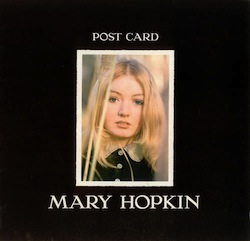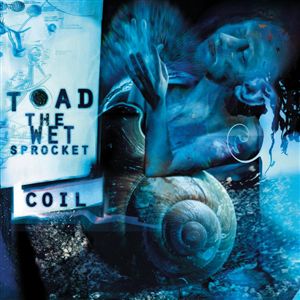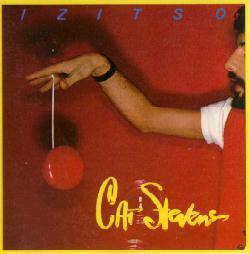At first impression, Invisible Touch is truly indistinguishable from Phil’s solo work, being that it’s full of catchy tunes and pop hooks, many of which were hit singles. Tony Banks wasn’t doing anything on the title track that was any more advanced than the keyboards on “Sussudio”, and whatever guitar flourishes Mike came up with would be copped by Daryl Stuermer on stage anyway. “Tonight, Tonight, Tonight” revives some of the “dark” moods of “Mama” from the last album, and while this too would be a hit single, they had to chop about four minutes out of the middle of the album version. Then there’s “Land Of Confusion”, the big social-conscience statement with pointed video to match, its distorted mannequins still causing nightmares of its own today. And while they’d been doing pretty ballads for a while now, “In Too Deep” might as well have been “One More Night Part Two”.
“Anything She Does” sits in the same position as “Illegal Alien” from last time, and while it’s not as offensive, the horns and synths are particularly dated. It also sets the album apart as a Genesis production, since Phil on his own would never be so cheeky to sing about a porn star on a solo album; that influence came straight from the other two. They were also quick to defend their modern streamlined hitmaking sound by pointing out all the lengthy tracks on the album, like “Domino”. But calling two unrelated tracks parts one and two of the same piece doesn’t make it so. That said, “In The Glow Of The Night” suffers from the technology of the time, while “The Last Domino” at least builds momentum to be mildly exciting. “Throwing It All Away” finally gets the recipe right, combining everyone’s pop tendencies with a great arrangement and straightforward delivery. It’s the high point of the album, certainly, especially when followed by “The Brazilian”, an instrumental (you know, just like they always used to do) that doesn’t seem to conjure much of an international feel, unless they were referring to the salon treatment.
There’s absolutely nothing wrong with Invisible Touch, unless you’d ignored the last five years and actually expected Genesis to recapture their prog roots. Everyone else was happy with it, and it sold by the bucketful. And even if Peter Gabriel’s So, which ruled the charts and airwaves along with this album during the same period, didn’t excite the gearheads, they could always check out GTR, which combined the ideas of former Genesis guitarist Steve Hackett with those of Steve Howe, most recently of Asia and once of Yes.
Genesis Invisible Touch (1986)—3






.png)





.jpg)






:format(jpeg):mode_rgb():quality(90)/discogs-images/R-4164441-1357411349-7909.jpeg.jpg)







